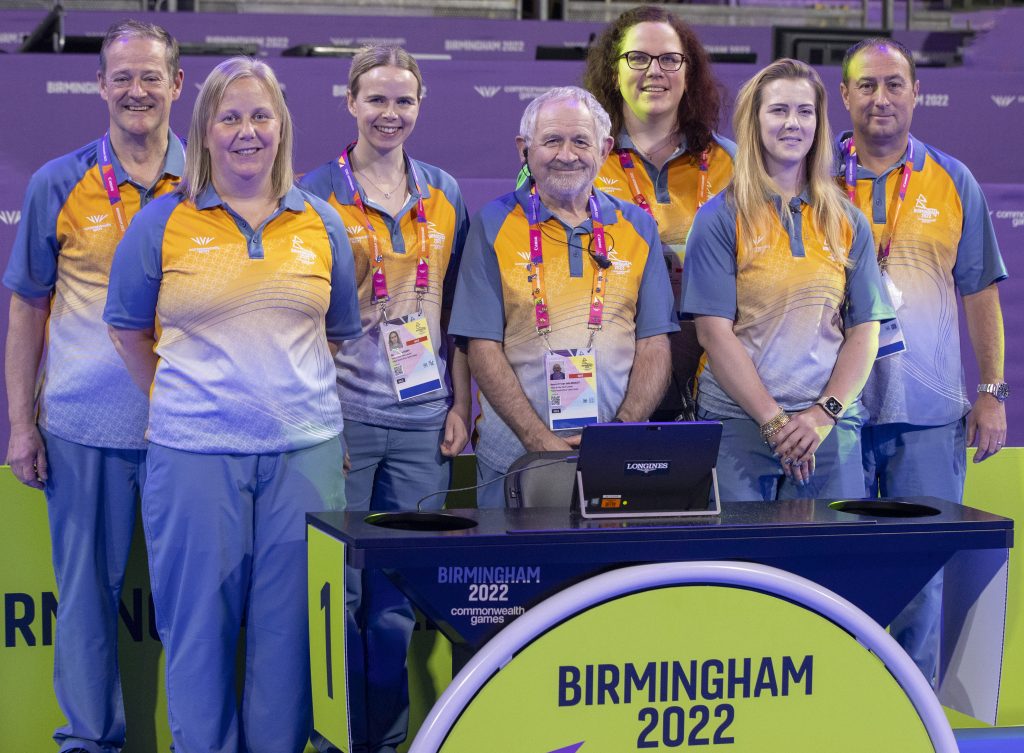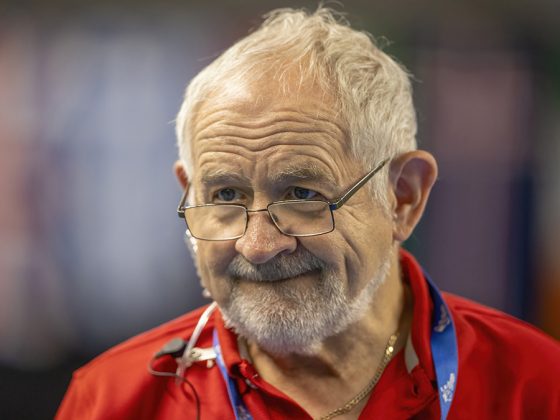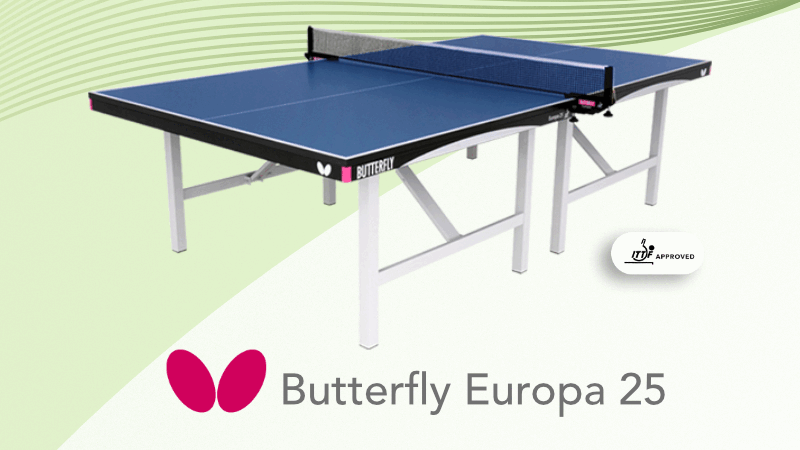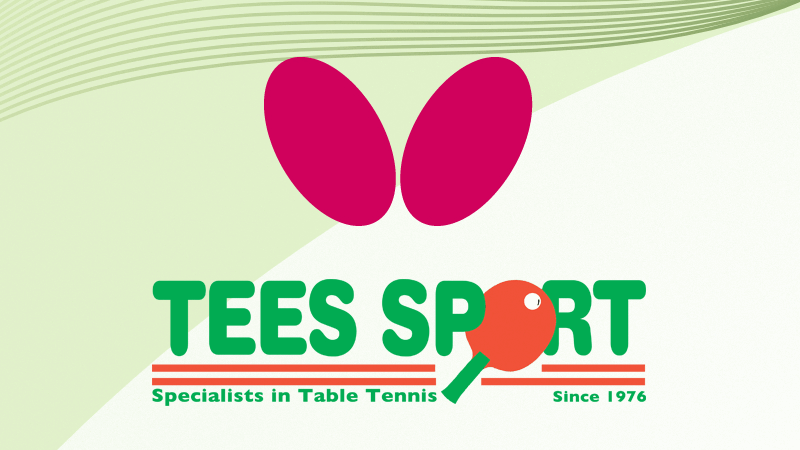Howard Brialey is not exactly sure how he ended up volunteering in table tennis – but as he prepares for a key role at Paris 2024, he is very glad he did and says the sport has changed his life.
Howard (pictured above) was an avid squash player when, having just sold his business, he applied to the volunteer programme at London 2012.
Squash was not an Olympic sport – it will be included for the first time at the Los Angeles 2028 Games – which may explain why he ended up being told to report to the table tennis venue.
“I was selected for table tennis, randomly,” he recalls. “I was a squash player at the time, so I had no idea why I’d been chosen, but I had a table at home, and I knew the rules, so it was fine.
“I ended up doing double shifts when they were short of volunteers, as I had a lot of free time.
“At the end of it, the Field of Play Manager then asked me to run the call room at the European Para Championships in Italy in 2013 and that’s how it all started.”
Since then, Howard has volunteered at table tennis events all around the world, including at Rio 2016 and in countries including Denmark, Norway, Australia and Slovenia, as well as last year’s European Para Championships in Sheffield.
He was also back on London’s Queen Elizabeth Olympic Park for the 2017 World Athletics Championships.
In Rio, he was call room manager – supervising the players, coaches and officials as they prepare to enter the arena – and that is the same role he has in Paris for both the Olympics and Paralympics.
He was offered the role following an interview with the table tennis Sport Manager, Gilles de lay Bourdonnaye, with whom he had previously worked at the World Para Championships in Spain two years ago.
Howard, who used to run his own employment agency and care agency, will also need to liaise with TV producers and the Field of Play Manager to make sure everyone gets to the right table at the right time – and will also need some knowledge about which logos are allowed or not allowed on kit so he can deal with issues before anyone sets foot on court. He will also train a team of volunteers in the days before the Games.
So what are the personal attributes he brings to the role?
“I’m very organised, because I managed a company with hundreds of staff,” he said. “Communication is one of the key skills I have, because you need to make sure everyone knows what they are doing, and then you can trust them to get on with it. You can’t be shy – it’s ‘come on, let’s go!’
“My French is okay, it’s what I would call ‘holiday French’. I’ve been going to a French tutor for the last few weeks to improve it. Part of what I’ll be doing is training volunteers and I don’t know how much English they’ll have.”
Howard, who is now a business consultant, says volunteering has given him so much – and encourages everyone else to get involved.
“Because I ran my own businesses for nearly 30 years, I have always felt that myself and my employees were part of a team and, although I was the leader of that team, I was still part of a team,” he said.
“After I sold both companies and started my business consultancy, I have been a team of one as I don’t employ anybody anymore – so what I get from volunteering at these events is that I am once again part of a team.
“Beyond that, it’s helped me understand how sport works and got me involved in table tennis, so much so I’m actually playing now – I’m playing about seven hours a week in various groups at Hutton Community Centre near Brentwood.
“It’s a great experience. You get the opportunity to get close to some of the best players in the world and to see them play. You make a huge number of friends from all over the world. It’s just a great experience all round.
“All my friends on Facebook are table tennis – everything revolves around table tennis.
“It’s just taken over my life – it’s changed my life.”






